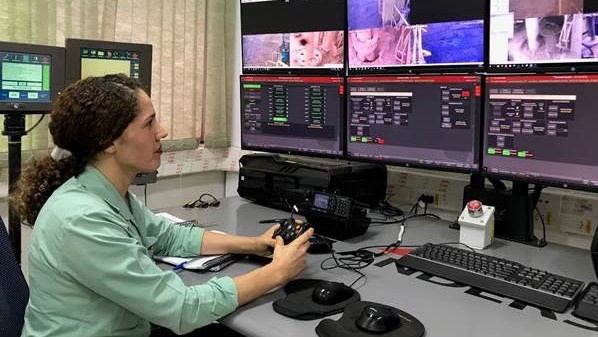Nokia partners with Vivo to provide LTE for Vale

Nokia has partnered with Vivo, Brazil’s leading telecommunications company, to provide private LTE wireless services for Vale’s Carajas iron mine. The Vivo-operated service will be part of Vale’s Industry 4.0 project, deploying autonomous drill platforms and trucks to increase mine productivity and improve worker safety. The network will be also used for mine-wide communications between workers.
“Nokia is making a lot of impact in the mining sector right now, and this project with Vale is a very important beginning here in Brazil. Our industrial-grade private LTE wireless solution is ideal for supporting the industry’s embrace of autonomous technologies. It solves a lot of issues that past wireless technologies have struggled with and opens the way for many new and exciting use cases for mines of the future,” Luiz Tonisi, head of the Brazil market unit at Nokia, said in a release.
Vale currently operates 13 autonomous trucks on a WiMax network at its Brucutu iron mine in Minas Gerais
According to Nokia, its mobile LTE and 5G technologies provide more reliable support than older WiMax or Wi-Fi systems for operating and controlling trucks and drills. The company’s private industrial-grade wireless solutions are also supporting new mining deployments in areas such as environmental monitoring and video-assisted remote operations.
Based on Nokia’s release, one of the advantages of LTE is its ability to adjust performance characteristics to each application and provide a single mine-wide wireless communications platform.
“The private wireless service we are implementing at Vale’s Carajas mine is one of many deployments that we expect to see in the next few years. Forward-thinking customers such as Vale are embracing Industry 4.0 technologies, fostering digital solutions at the heart of their businesses, whether in agriculture, transportation or mining. We are excited to be leading this transformation,” added Alex Salgado, Vivo’s VP of business-to-business.
Vale currently operates 13 autonomous trucks on a WiMax network at its Brucutu iron mine in Minas Gerais, Brazil, which it intends to replace with a private LTE network and is also considering an IoT (internet-of-things) application, which would connect dam monitoring instruments using LTE.
Nokia is concurrently working with several mining operators worldwide to deploy private LTE-based wireless networks, with plans to migrate to 5G in the future.
(This article first appeared in the Canadian Mining Journal)
{{ commodity.name }}
{{ post.title }}
{{ post.date }}




Comments